Deputy Prime Minister Nguyen Hoa Binh , Chairman of the Amnesty Advisory Council, attended and delivered a directive speech.
Permanent Deputy Prime Minister Nguyen Hoa Binh, Chairman of the Amnesty Advisory Council, attended the conference. Photo: VGP
The recidivism rate is only 0.05%.
In his opening speech, Senior Lieutenant General Le Van Tuyen, Deputy Minister of Public Security , Standing Member of the Amnesty Advisory Council, said that 2025 is a year with many important events and major holidays of the country. Stemming from the nation's humanitarian tradition and the lenient policy of the Party and State towards repentant criminals who have done well in reform work, on March 3, 2025, the President issued Decision No. 266 on amnesty in 2025 on the occasion of the 50th anniversary of the Liberation of the South and National Reunification. Accordingly, the President decided to grant amnesty to 8,055 people. To date, only 4 cases of amnesty have re-offended, accounting for 0.05%.
On the occasion of the 80th anniversary of National Day (September 2, 1945 - September 2, 2025), on July 3, 2025, the President signed Decision No. 1244 on the second amnesty in 2025 and Decision No. 1245 on the establishment of the Amnesty Advisory Council. Implementing the President's Decision, the Amnesty Advisory Council issued Instruction No. 94 on the second amnesty in 2025. The Ministry of Public Security issued a decision on the establishment of the Amnesty Steering Committee and related plans and decisions.
The summary report on the amnesty work in 2025 (April 30) shows that the amnesty work has been carried out seriously, ensuring democracy, objectivity, fairness, publicity, transparency, strictness, correct subjects, conditions, and progress as set out. The amnesty for foreign prisoners has contributed to the implementation of foreign affairs, promoted relations with important partner countries, and has been highly appreciated by other countries.
The 2025 amnesty (April 30th) affirms the results of the efforts and endeavors in the management, education and rehabilitation of prisoners by officers and soldiers working at detention facilities. During the implementation process, the Government and the Amnesty Advisory Council have directed relevant agencies to step up propaganda work so that the masses can trust and better understand the humane and lenient policies of the Party and State towards criminals, creating consensus in society, actively contributing to the fight against hostile forces distorting and slandering Vietnam for human rights violations.
The number of people pardoned is 8,055, including 8,054 prisoners and 1 person whose prison sentence is temporarily suspended. On the morning of May 1, all detention facilities under the Ministry of Public Security and the Ministry of National Defense held a ceremony to announce the President's decision on pardon in 2025 (April 30) and release the pardoned people.
According to reports from the police of provinces, cities, detention camps and temporary detention camps under the Ministry of Public Security, the Criminal Judgment Execution Management Agency under the Ministry of National Defense, the implementation of the 2025 amnesty decision (April 30) was carried out in accordance with regulations, without any errors or complicated incidents; before, during and after the announcement of the President's amnesty decision, the absolute safety of the detention facilities was ensured.
Since implementing the President's Decision on amnesty in 2025 (April 30), the Amnesty Advisory Council has not received any complaints or denunciations of negative behavior in implementing amnesty.
The Ministry of Public Security, the Ministry of National Defense, and the People's Committees of provinces and cities have directed relevant agencies and units to develop plans and proactively take measures to receive and create conditions to help pardoned people stabilize their lives soon and continue to effectively implement Decree No. 49/2020/ND-CP detailing the implementation of the Law on Enforcement of Criminal Judgments on community reintegration. The Ministry of Public Security has issued a document directing the police of provinces and centrally run cities and prisons and detention camps to do a good job of preparing for community reintegration for pardoned people, limiting the situation of recidivism.
According to reports from local police on the results of receiving, managing, and educating amnestied people, after 1 month since the announcement of the President's amnesty decision, up to now, 4 people who were amnestied on April 30 have violated the law; of which 3 were criminally prosecuted and 1 was administratively prosecuted.
At the conference, delegates evaluated the results, clarified good experiences and shortcomings and limitations in the implementation of the April 30 amnesty; listened to the President's decisions, guidance documents of the Amnesty Advisory Council, ministries, departments and branches on the September 2 amnesty.
Permanent Deputy Prime Minister Nguyen Hoa Binh delivered a speech at the conference. Photo: VGP
Affirming a stable political environment and peaceful life
Recognizing and praising the efforts and results of the April 30 amnesty work of ministries, branches, and localities, Deputy Prime Minister Nguyen Hoa Binh highlighted eight successful lessons. That is, the staff work was very accurate and timely. The issuance of documents was very accurate and strict. The review of records was public, transparent, democratic, and serious. The organization of granting amnesty decisions and handing them over to localities simultaneously at prisons nationwide was highly appreciated by public opinion and people, creating a joyful and excited atmosphere and also proving that the Party and State's policy is very strict but also very humane and humane towards repentant criminals.
“This is also proof of a stable political environment and a peaceful and sustainable life, because if social order is not stable, it is certainly impossible to grant amnesty to such a large number of people,” the Deputy Prime Minister emphasized.
Besides, according to the Deputy Prime Minister, the propaganda work on amnesty is very good. Through amnesty, petitions have been resolved and "the good news is that the petitions have not raised any complicated issues".
“The implementation of civil obligations in the judgments has been very successful, the judgments have been strictly enforced in both criminal and civil obligations through compensation, restitution, and remediation. After the amnesty, the reintegration work for pardoned prisoners released early has been well implemented in localities, which is a practical and effective measure of the amnesty work,” said the Deputy Prime Minister.
According to the Permanent Deputy Prime Minister, amnesty is a major policy, demonstrating a lenient and humane policy imbued with the cultural identity and fine traditions of the Vietnamese people; it not only demonstrates the strictness of the law but also demonstrates the profound humanity of our regime towards those who make mistakes, know how to repent, reform, and actively correct their mistakes to become honest people.
Inheriting and promoting the humanitarian tradition of the Vietnamese people, over the past 80 years, with the lenient policy of the Party and State of Vietnam, there have been nearly 40 times of amnesty and early release of prisoners for hundreds of thousands of prisoners to return to their families and the community. From 2009 to now, the Government has submitted to the President a decision on amnesty and early release of prisoners for more than 90,000 people. Prisoners who have been amnestied and released early have been received and assisted by their families, all levels, sectors, and social organizations, creating favorable conditions for them to quickly stabilize their lives and reintegrate into the community, and the rate of recidivism is negligible.
Although the first phase of the 2025 amnesty work is urgent, members of the Amnesty Advisory Council, departments, ministries, branches, especially specialized and professional agencies of the Ministry of Public Security, prisons, temporary detention camps, criminal enforcement agencies of the police, army and provincial courts nationwide have quickly completed the documents, processes, and procedures for strict and careful review, correct subjects and conditions, ensuring publicity, transparency, objectivity, democracy and compliance with the law.
The results were presented to the President for signing a special amnesty decision to release 8,055 prisoners early so that they could return to society and reunite with their families and loved ones on the occasion of April 30 and May 1. Security and order related to the amnesty work were well maintained.
“That result demonstrates the efforts of the agencies, especially the detention and criminal enforcement facilities. With compassion and responsibility, you have overcome many difficulties to do a good job of managing, educating, and reforming prisoners, strictly complying with the provisions of the law and detention regulations, actively supporting prisoners to study and quickly become good people. At the same time, it demonstrates the accuracy and compliance with the provisions of the law in organizing the review of special pardons,” the Chairman of the Special Pardon Advisory Council assessed.
Permanent Deputy Prime Minister Nguyen Hoa Binh delivered a speech at the conference. Photo: VGP
Ensuring democracy, objectivity and transparency
Deputy Prime Minister Nguyen Hoa Binh said that on the occasion of the 80th anniversary of National Day, July 3, 2025, the President signed Decision No. 1244 on amnesty in 2025 (phase 2). Due to the very special nature and significance of the amnesty on September 2, the scope, scale, conditions, and subjects considered for amnesty under the President's Decision this time are more extensive than the first phase on April 30, and the work to be resolved is also greater, while the time from now until the announcement of the amnesty decision is very short, less than 2 months.
To continue to deploy and carry out the second amnesty period in 2025 in accordance with regulations, the Deputy Prime Minister requested ministries, departments, branches and localities to learn from experience and promote the results achieved from the amnesty period on April 30, fully and deeply grasp the Party's guidelines and viewpoints, the State's policies and laws on amnesty, ensuring democracy, objectivity, transparency and compliance with the law. Develop plans, schedules and work schedules and seriously and methodically implement specific steps and tasks to prepare and carry out the amnesty period on September 2 right from the stage of indoctrination, deployment and training for the team of officials working on amnesty, amnesty support teams of agencies and units, to the final stage of summarizing and evaluating the amnesty results, monitoring and managing amnesty recipients and the situation of public opinion, security and order related to amnesty.
Ministries, departments, branches and localities shall widely propagate and disseminate humane and humane policies on amnesty and clemency, regulations of the Amnesty Law, the President's Decision on amnesty in 2025 (phase 2) and the Guidelines of the Amnesty Advisory Council, combining the fight to prevent and refute destructive, negative arguments and acts that go against the amnesty policies.
The Amnesty Advisory Council coordinates with departments, ministries, branches and localities to promote responsibility for the common task, and effectively implement policies and regulations on amnesty. Eligible cases must have their amnesty application files prepared in accordance with regulations, to avoid any omissions or omissions.
The expert teams assisting the members of the Amnesty Advisory Council must promptly examine and evaluate the results objectively, accurately, and in accordance with regulations for the Standing Committee of the Amnesty Advisory Council on time to serve the synthesis and reporting at the meeting of the Amnesty Advisory Council. Members of the Amnesty Advisory Council, heads of agencies and units must regularly inspect, guide, supervise, prevent, detect, and promptly stop errors to immediately correct and strictly handle violating groups and individuals.
Localities, agencies, organizations, businesses, and social organizations proactively develop plans and measures to receive and create favorable conditions to help amnestied people return to their places of residence to soon stabilize their lives.
Source: https://hanoimoi.vn/pho-thu-tuong-thuong-truc-chinh-phu-dot-dac-xa-dip-2-9-co-y-nghia-dac-biet-dien-doi-tuong-duoc-xem-xet-mo-rong-hon-708435.html


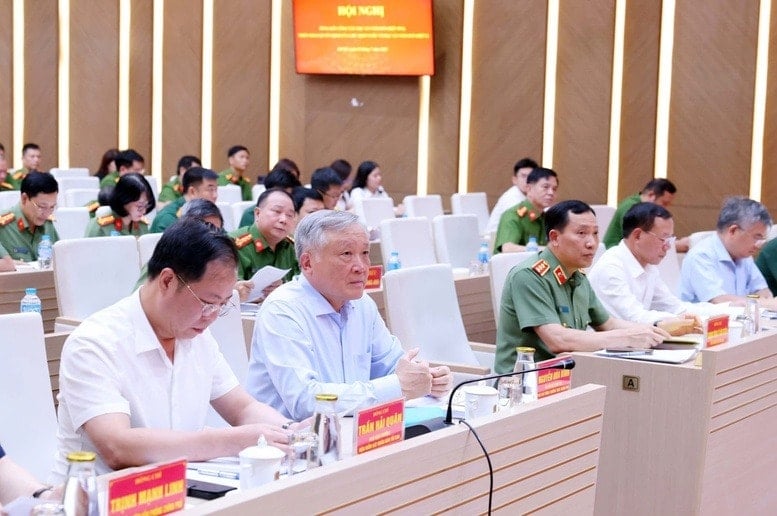
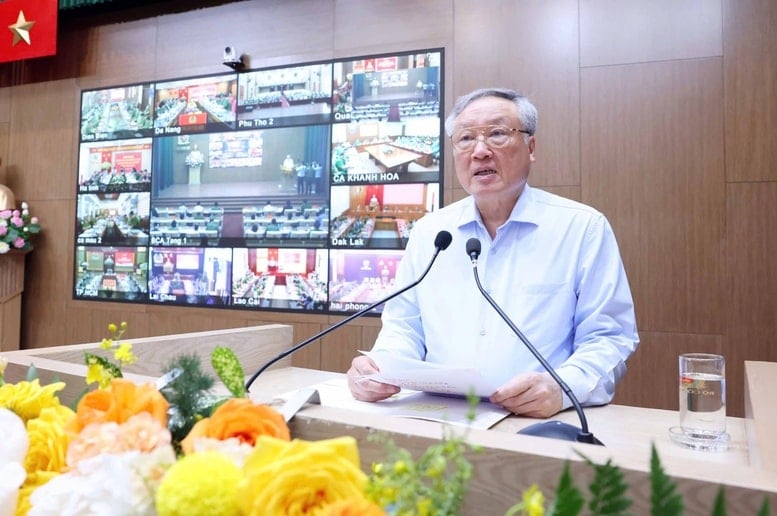
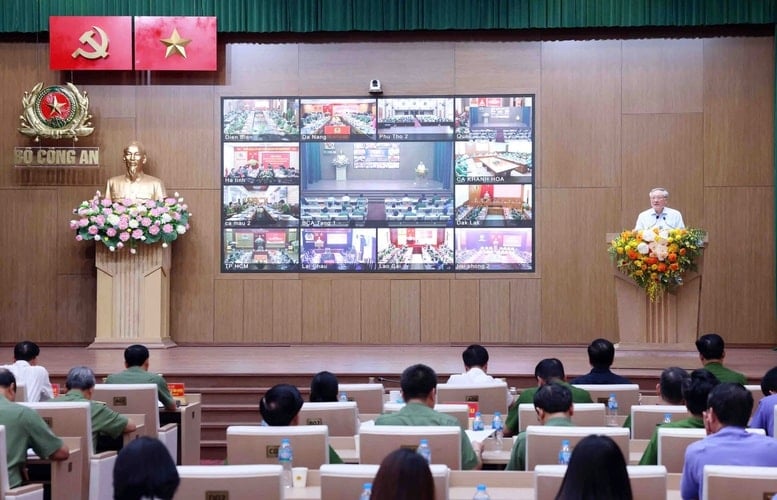

![[Photo] Hanoi morning of October 1: Prolonged flooding, people wade to work](https://vphoto.vietnam.vn/thumb/1200x675/vietnam/resource/IMAGE/2025/10/1/189be28938e3493fa26b2938efa2059e)




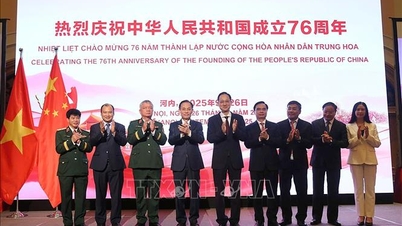

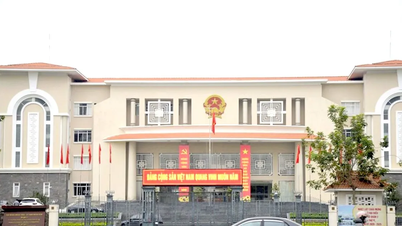

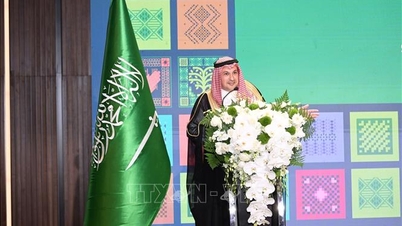


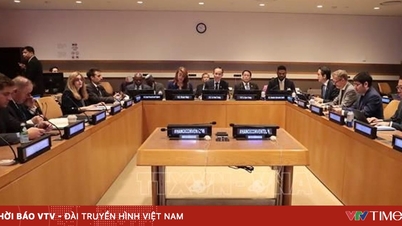


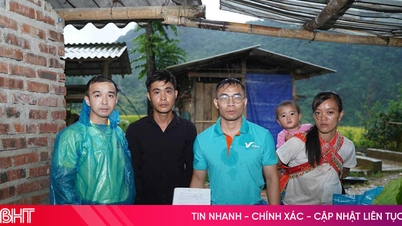

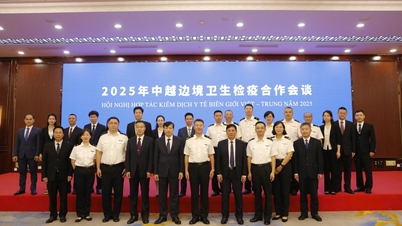



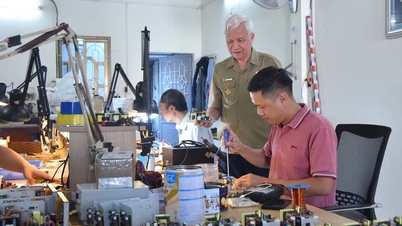


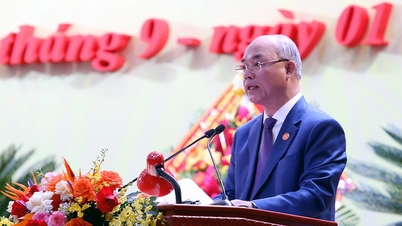






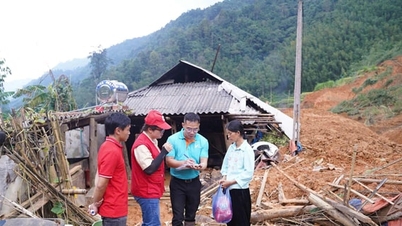
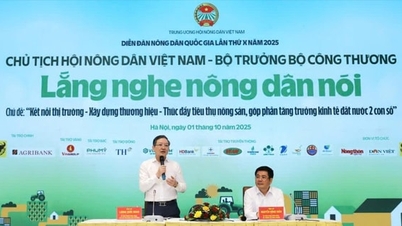
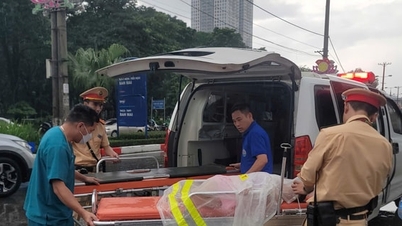
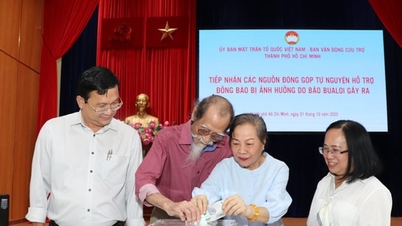

![[Photo] Panorama of the cable-stayed bridge, the final bottleneck of the Ben Luc-Long Thanh expressway](https://vphoto.vietnam.vn/thumb/1200x675/vietnam/resource/IMAGE/2025/9/30/391fdf21025541d6b2f092e49a17243f)
![[Photo] President Luong Cuong receives President of the Cuban National Assembly Esteban Lazo Hernandez](https://vphoto.vietnam.vn/thumb/1200x675/vietnam/resource/IMAGE/2025/9/30/4d38932911c24f6ea1936252bd5427fa)























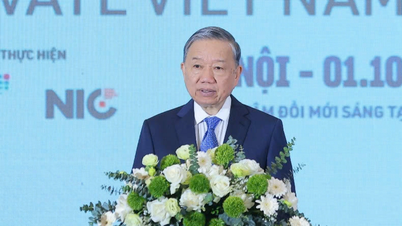

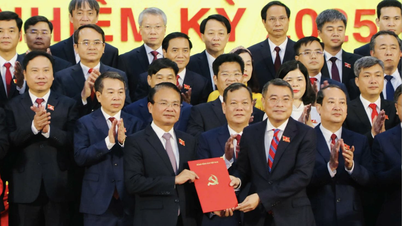
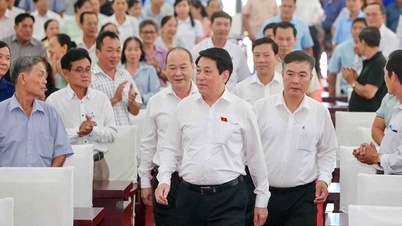
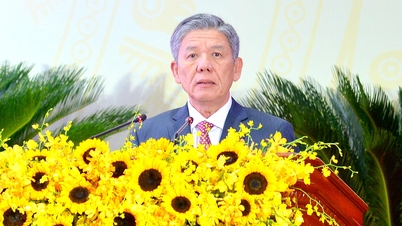




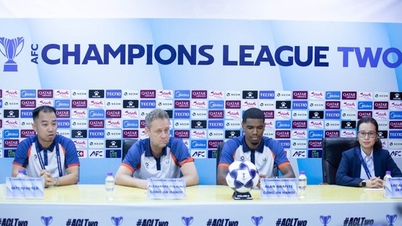

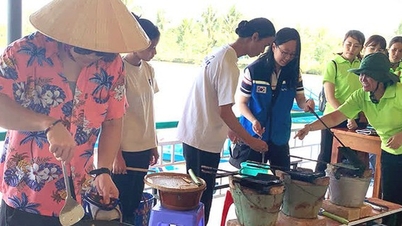




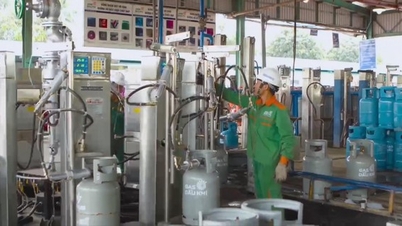
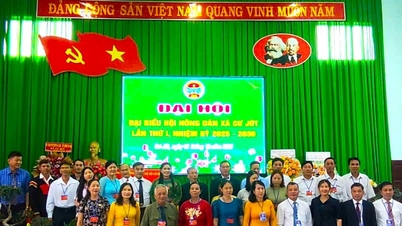

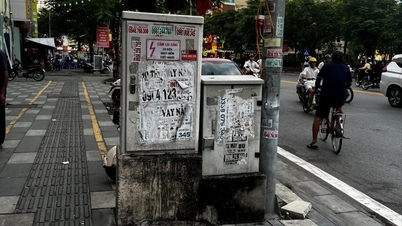
















Comment (0)